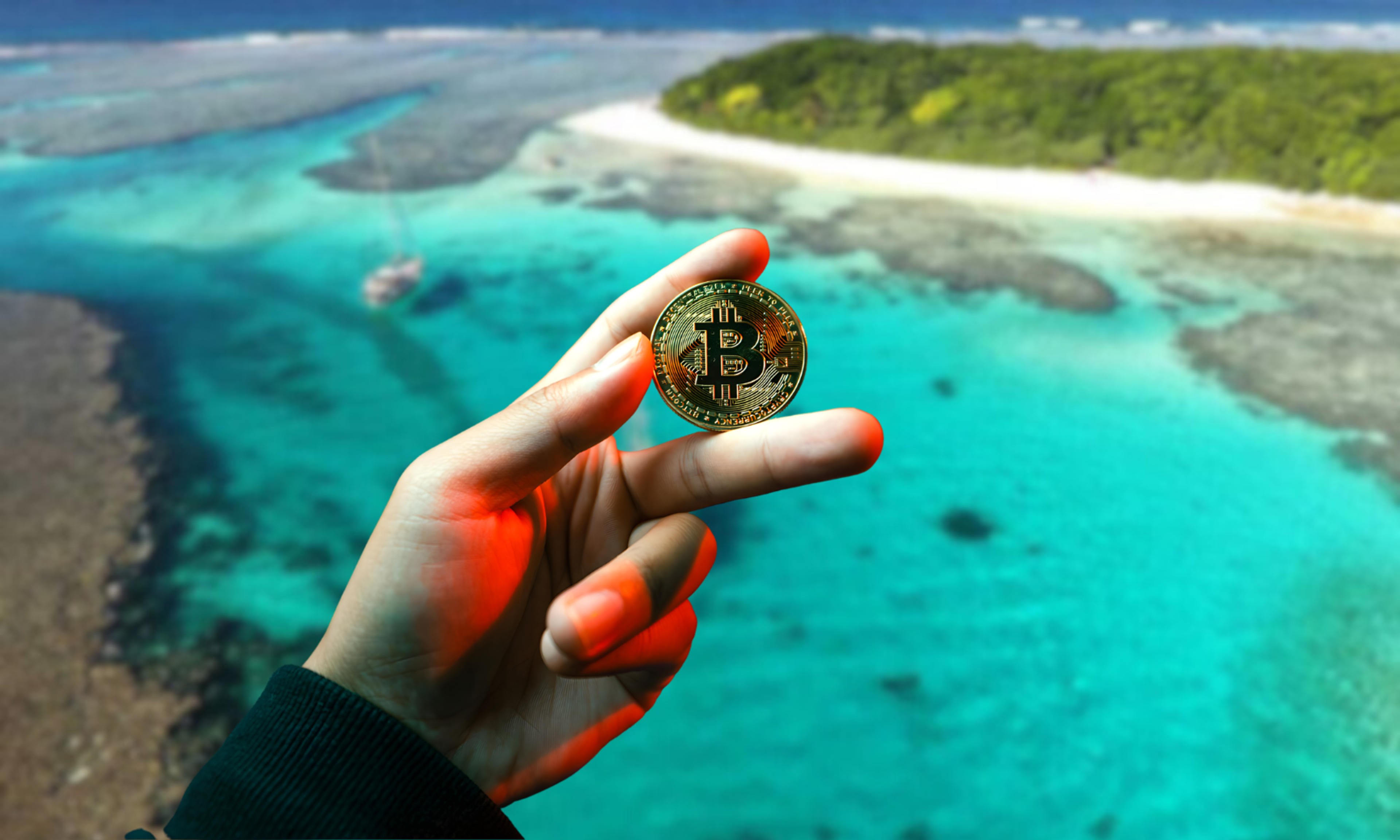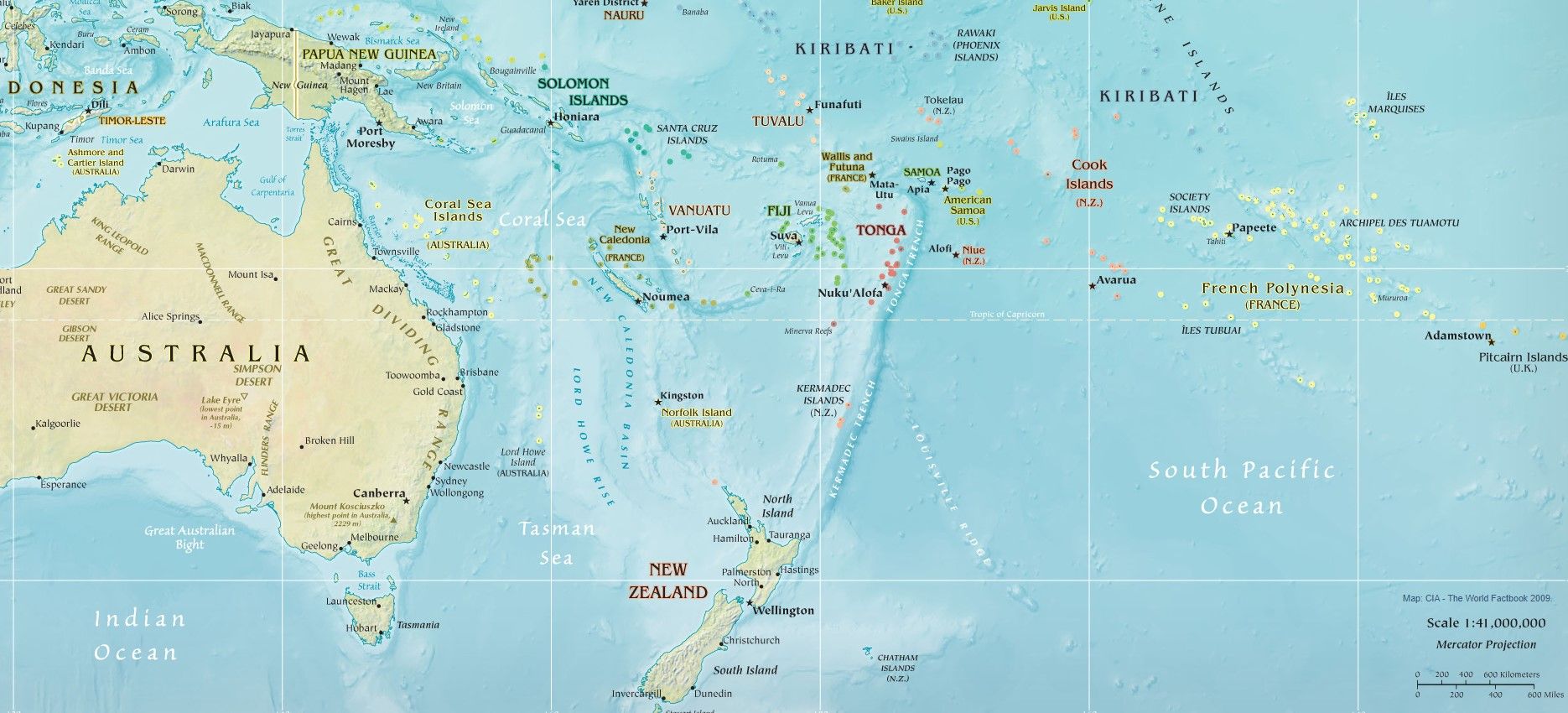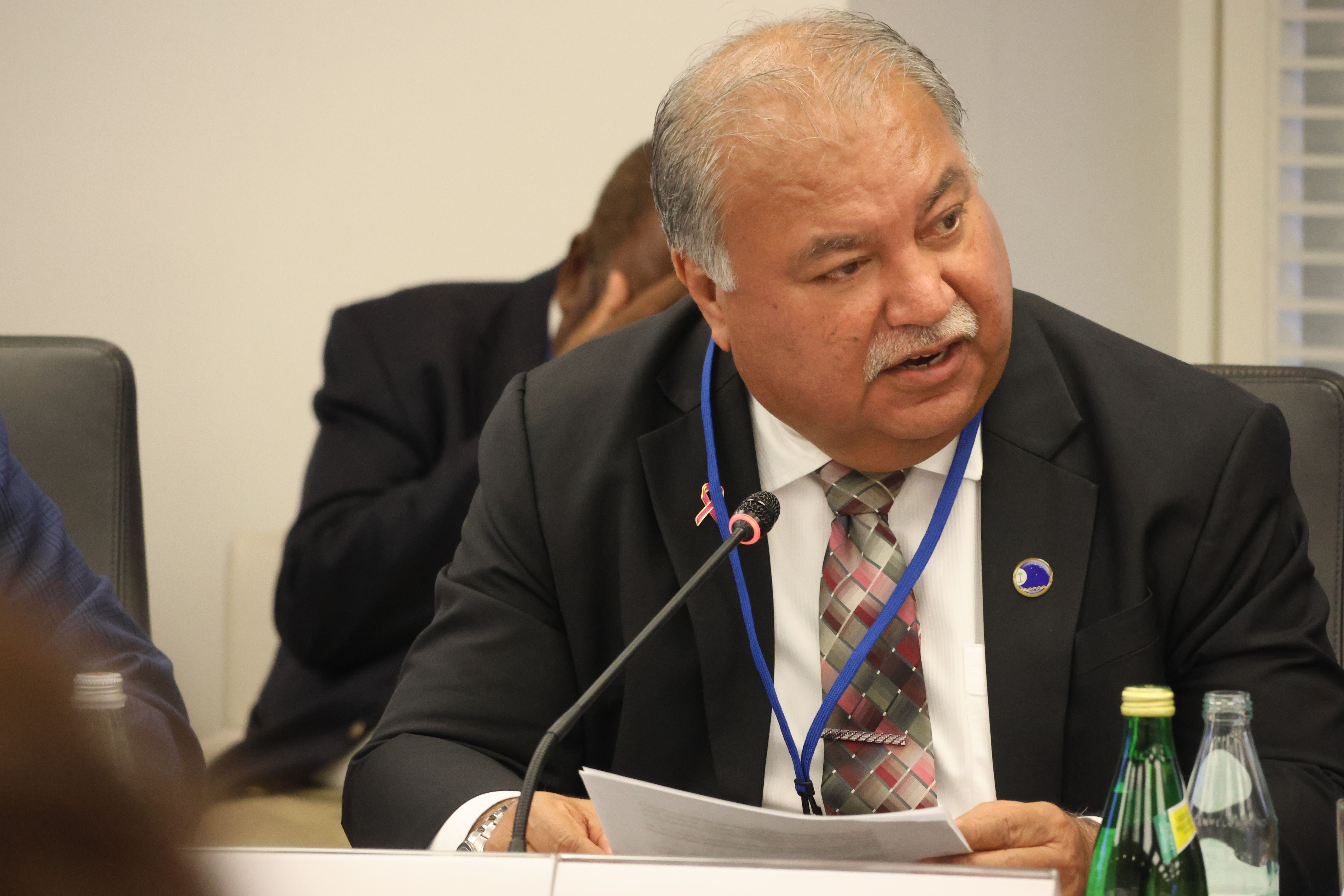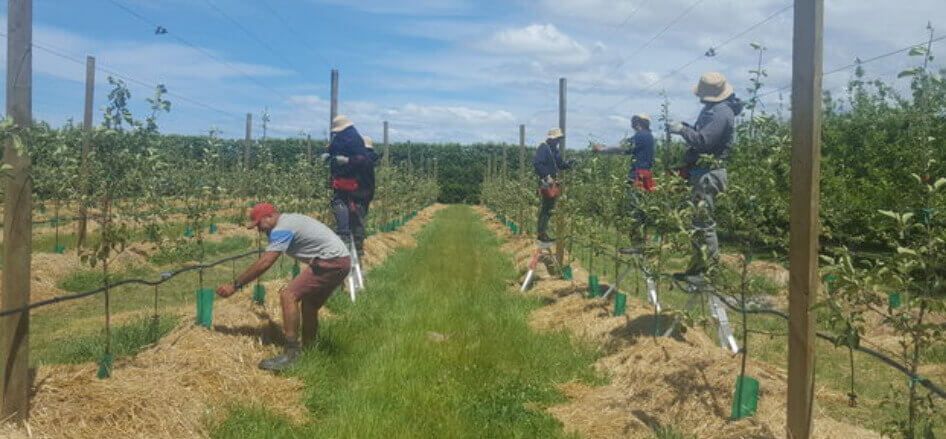

Academic and NSW Senator Jess Collins urges Australian and New Zealand governments to explore way to reduce fees for sending money abroad.
Photo/Supplied
Sending money home: Call for transparent solutions and digital transformation
Many Pacific families rely on remittances to support essential needs like food, education, and healthcare, but high transfer fees impose major barriers, experts say.


Fiji fast-tracks needle programme as new study shows HIV cases surging at record pace

‘Shot put queen’ Dame Valerie Adams leads Pacific pride at NZ's Halberg Awards 2026

Pacific digital-finance push continues despite global crypto volatility

Rising costs hit Pacific families hard as interest rate decision nears

Fiji fast-tracks needle programme as new study shows HIV cases surging at record pace

‘Shot put queen’ Dame Valerie Adams leads Pacific pride at NZ's Halberg Awards 2026

Pacific digital-finance push continues despite global crypto volatility
Pacific families are paying some of the highest fees in the world just to send money home, cutting into money meant for food, school, healthcare and emergencies.
Experts say millions could be saved if governments and remittance companies lowered costs and embraced digital options.
Workers in New Zealand and Australia are often charged some of the world’s highest remittance fees, leaving less money for the people who need it most.
World Bank data shows just how important remittances are in the Pacific. In Tonga, money sent from overseas makes up almost half of the entire kingdom’s economy. In Fiji, families received more than $700 million in remittances in 2021.
Jess Collins, a Liberal senator for New South Wales and a former research fellow in the Pacific Islands Program at the Lowy Institute, told William Terite on Pacific Mornings that fees from Australia and New Zealand can be very high.
“If you're sending $200 from New Zealand or Australia, that's between 10 and 17 per cent of that transaction. If you're doing that regularly, week on week, it really adds up.”
Listen to Jess Collins' full interview below.
The United Nations has set a goal to lower remittance fees to under three per cent. Collins says some digital providers in New Zealand have already achieved this benchmark.
“Business services are sending remittances home on behalf of Pacific Island workers, and they're doing that at what's called the interbank rate, which is below three per cent as well. So, it is absolutely possible, it just takes a lot of complex policy work and pulling a lot of levers.”
Australia has about 14,430 seasonal workers under the Pacific-Australia Labour Mobility scheme (PALM), mostly from Vanuatu, Timor-Leste, and Tonga. Collins’ research shows these workers can send home up to 40 per cent of their income.

Remittance fees to send money across the Pacific are some of the highest in the world. Photo/Geographic Guide
She says reducing fees could save families about $91 million annually, money that directly benefits these communities and is more effective than foreign aid because it is transferred from person to person, family to family.
Baron Waqa, Secretary-General of the Pacific Islands Forum, discussed improving cross-border payments during a recent speech at the World Bank and IMF annual meeting in Washington.
He says payment systems are key to commerce, remittances, and livelihoods. “Improving the efficiency, affordability, and safety of payments across our Blue Pacific is central to building a more inclusive and resilient regional economy.”
Waqa says the Forum is working with the World Bank and Pacific central banks through the Pacific Strengthening of Correspondent Banking Relationships Project. The goal is to improve payment systems, strengthen cross-border connectivity, and reduce costs.
“Only through collective effort and coordinated action can we build a more connected, resilient and inclusive financial future for our Blue Pacific.”

Pacific Islands Forum Secretary-General Baron Waqa speaks at an International Money Fund event. Photo/PIF
Cash remains dominant
A report from the Market Development Facility describes the Pacific as one of the most remittance-dependent regions in the world, with a strong preference for cash transfers.
“Cash remains king in the Pacific and trust in other methods for storing and sending money is generally low. Along with poor telecommunications infrastructure, financial and digital literacy among consumers is one of the barriers to the growth of mobile money,” the report states.
Collins says factors such as trust, limited group-sending options, and physical barriers such as being far from banking infrastructure, make it difficult for Pacific Islanders to use alternative remittance methods.
“Western Union has been around for many, many decades in the Pacific, and you've got kiosks all around the Pacific, including in places where there aren't branches. It certainly is a whole lot easier to be able to send money to places where they rely on cash as well.
“A lot of the remittance providers aren't transparent about what it costs the Pacific Islanders and anybody else who's remitting as well. They put a significant markup on the remittance fee.”
Collins says governments should enforce full transparency from remittance providers and eliminate exclusive contracts, such as Australia’s arrangement with Western Union. She adds Australia could follow New Zealand’s lead by supporting competition and investing in services that allow cheaper, more regular transfers.

Seasonal workers from the Pacific are the backbone of many horticultural businesses in Australia and New Zealand. Photo/File
Increasing use of digital remittances
The Development Policy Centre, an Australian research think tank, notes that workers in the Seasonal Worker Program are increasingly turning to digital remittance services.
“New lower-cost RSPs like Ave Pa’anga Pau and KlickEx have quickly grown in popularity among temporary migrant workers, accounting for 14.5 per cent of all surveyed households, higher than 10 per cent in the Australia-Tonga corridor and 37 per cent in the New Zealand-Tonga corridor,” academic authors Hiroshi Maeda, Ryan Edwards, and Danial Suryadarma write.
Looking ahead, Collins says emerging technologies could further reduce the costs, speed, and accessibility.
“Digital remittance is super cheap and the money is near instant, very, very quick to get to where it's needed. There’s a lot of education that the Australian and New Zealand governments can do in teaching people how to best use their smartphones, set up digital wallets, and be able to move around between providers. We need to make sure that those cheaper digital remittances are the future of sending money home to the Pacific.”